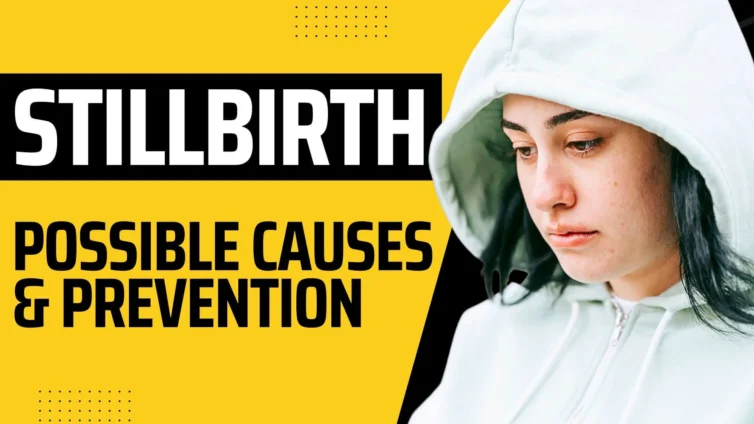Pregnancy is a transformative journey, a time of profound changes that reverberate at every level of your being. As an obstetrician, I’ve been privileged to guide many expectant mothers through this unique phase of life. I understand how the myriad of lifestyle alterations that accompany pregnancy can seem overwhelming, especially for first-time mothers. This guide will help you make informed decisions and adaptations during this remarkable journey.

Introduction to Pregnancy Lifestyle
During pregnancy, it’s not just your body that transforms; your lifestyle also evolves to accommodate the new life growing within you. What you eat, how you work, travel, your beauty routines, the environmental factors you are exposed to, your relationships, and even your fashion choices – every facet of life takes on a new hue when you’re expecting a baby.
The journey of pregnancy can feel like a roller-coaster ride. Some days, you may feel a sense of elation, while others may bring challenges that can leave you feeling anxious and uncertain. Having the right information at your disposal will allow you to navigate these changes confidently.
Embracing a pregnancy-friendly lifestyle doesn’t mean giving up everything you love. Instead, it’s about making wise decisions that are beneficial for you and your little one’s health. This guide aims to help you understand what to expect, offer practical advice on navigating various aspects of your lifestyle, and provide tips to ensure your journey through pregnancy is as comfortable and joyous as possible.
Adapting Your Lifestyle Choices During Pregnancy

Pregnancy is a period that calls for conscious lifestyle modifications. From your morning cup of tea to social drinking habits, it’s essential to adapt to these changes for the well-being of your unborn child. Let’s delve into some common lifestyle habits and understand their implications during pregnancy.
The Caffeine Conundrum: How Much is Too Much?
If your morning ritual involves savoring a cup of coffee or tea, you might wonder about the safety of caffeine during pregnancy. Caffeine, when consumed in large amounts, can cross the placenta and affect your baby’s heart rate. Research indicates a link between high caffeine consumption and pregnancy complications like preterm birth and low birth weight. However, complete deprivation isn’t necessary. A daily intake of less than 200mg of caffeine, equivalent to a 12-ounce or 350 ml cup of coffee, is considered safe during pregnancy.
Understanding the Impact of Alcohol
Alcohol is one lifestyle element that is best avoided during pregnancy. When consumed, alcohol can cross the placenta, impacting the development of your baby. This could result in a range of complications known as Fetal Alcohol Spectrum Disorders (FASD), which include physical abnormalities, learning difficulties, and behavioral problems. As no safe level of alcohol during pregnancy has been established, complete abstinence is recommended.
Confronting the Dangers of Smoking
Smoking during pregnancy is a definite no. It exposes both you and your baby to harmful chemicals, potentially leading to preterm birth, low birth weight, and developmental issues. Importantly, second-hand smoke can also be detrimental. If you or your partner smoke, consider pregnancy as a compelling reason to quit. Don’t hesitate to reach out to healthcare professionals who can provide support and assistance in your journey toward a smoke-free life.
In summary, lifestyle adaptations are crucial during pregnancy. Remember, every choice you make will directly or indirectly affect the precious life developing inside you.
Navigating Travel During Pregnancy

Travel during pregnancy, whether for work or leisure, can stir up many questions. Essentially, travel is safe for expectant mothers, but each mode of transport requires its own considerations.
For car journeys, comfort breaks are crucial, and remember to wear your seatbelt correctly. When traveling by train, opt for lower berths and avoid heavy luggage.
Air travel is safe until the 36th week for normal pregnancies, but airline policies vary, so it’s best to check beforehand. Also, research the destination’s healthcare facilities.
Stay hydrated, carry healthy snacks, and take walks during your journey. Always have your doctor’s contact and medical records at hand.
The Importance of Sleep Positions During Pregnancy

As pregnancy advances, finding a comfortable and safe sleep position is crucial. The left side-lying position, or SOS (Sleep On Side), is recommended, as it enhances kidney function, reduces swelling, and ensures better blood flow to the placenta.
For comfort, use a pregnancy pillow or a regular pillow between your legs and under your abdomen. Sleeping on your back can lead to backaches, breathing issues, and decreased circulation to your heart and baby, while stomach sleeping is impractical past the first trimester due to the growing belly.
You’ll naturally change positions during sleep, but starting on your left side is beneficial. Remember, each pregnancy is unique, so find what’s comfortable for you and safe for your baby. Consult your doctor for any concerns.
Balancing Pregnancy and Work: A Practical Guide

Balancing a career and pregnancy can be challenging but is by no means impossible. The key is to understand your rights as a pregnant employee and to plan accordingly. Ensure that you take regular breaks, avoid stress, and eat healthy snacks. If your work involves standing for long periods or heavy lifting, talk to your supervisor about modifying your duties.
Open communication with your employer about your pregnancy and your maternity leave plan is crucial. Also, remember to organize your workspace for comfort, with proper back support and an ergonomic set-up.
Consider exploring options like working from home or flexible work hours if they’re available. Remember, your health and your baby’s well-being are paramount, so don’t hesitate to prioritize your needs.
Decoding Beauty Treatments During Pregnancy

Pregnancy is a time when your body undergoes numerous changes, and you may need to adapt your beauty regimen accordingly. But what beauty treatments are safe during pregnancy?
When it comes to skincare, it’s essential to be aware of the ingredients in your products. Some substances, like retinoids and salicylic acid, are best avoided during pregnancy. Opt for products with natural ingredients, and always do a patch test first to check for any reactions.
Hair treatments, such as coloring or perming, are generally considered safe after the first trimester, as the risk of chemical substances being absorbed into the skin is low. However, due to hormonal changes, your hair might react differently to these treatments than usual. Always opt for well-ventilated spaces for any chemical hair treatments.
Spa treatments can provide much-needed relaxation. Massages can help alleviate pregnancy discomforts, but always inform your therapist about your pregnancy so they can adjust their techniques accordingly. Avoid hot tubs and saunas, which can raise your body temperature to levels that might be harmful to your developing baby.
Understanding the Impact of Environmental Toxins

During pregnancy, being aware of environmental toxins and taking steps to minimize your exposure is critical. Environmental toxins can range from cleaning products, air pollution, to certain types of plastics.
Try to use natural or eco-friendly cleaning products that are free from harsh chemicals. If you’re painting the nursery or remodeling your home, ensure it’s well-ventilated and consider staying elsewhere while the work is being done to avoid exposure to paint fumes.
When it comes to plastics, some contain substances like phthalates and BPA, which can interfere with hormonal functions. Opt for BPA-free products and avoid heating food in plastic containers, as heat can cause these chemicals to leach into your food.
Pregnancy, Relationships, and Emotions

Pregnancy is an emotional roller-coaster ride that can have an impact on your relationships. The physical changes, hormonal fluctuations, and anticipation of welcoming a new life can be overwhelming. However, stress management is essential as prolonged high stress can have adverse effects on both the mother and the baby.
Understanding your stress triggers can help you develop effective coping mechanisms. Hormonal changes during pregnancy can heighten emotions and reactions, but remember, it’s okay to have these feelings.
Practice relaxation techniques like deep breathing exercises, progressive muscle relaxation, or prenatal yoga. These can lower your stress levels and also have added benefits for your body, preparing it for childbirth.
It’s essential to communicate your feelings with your partner and family. Support from your partner, family, and friends can provide a strong emotional cushion during this period. If stress becomes overwhelming, don’t hesitate to seek professional help.
Remember, it’s okay to take time for yourself. Engage in activities you enjoy and that relax you. Read a book, listen to your favorite music, or simply enjoy a quiet moment. Your well-being is important for your baby’s healthy development.
Maternity Fashion: Looking Good While Expecting

Pregnancy doesn’t mean you have to compromise on your fashion choices. Maternity fashion has evolved considerably, offering plenty of stylish and comfortable options. Opt for clothes that are stretchable and breathable. Invest in good quality maternity bras and comfortable footwear.
Remember, the essence of fashion is to make you feel good about yourself. Embrace your changing body and flaunt your baby bump proudly. After all, pregnancy is the epitome of feminine beauty.
:
Key Takeaways
1. Adapting lifestyle habits like caffeine intake, alcohol consumption, and smoking is crucial during pregnancy for the well-being of both mother and baby.
2. Travel during pregnancy is generally safe, but each mode of transport comes with its considerations. Always prioritize comfort and safety.
3. Balancing work and pregnancy requires open communication with employers and prioritizing health needs.
4. Beauty treatments can be safely enjoyed during pregnancy, but it’s essential to be cautious about product ingredients and treatment procedures.
5. Emotional well-being plays a significant role in a healthy pregnancy. It’s important to have open conversations with partners and seek support when needed.
Final Thoughts
Navigating the journey of pregnancy involves a series of lifestyle adaptations. From understanding the effects of everyday habits to figuring out travel, work, and beauty regimens, this journey is unique for every individual. It’s all about prioritizing health, making informed choices, and enjoying this beautiful phase of life. Remember, it’s okay to seek help and ask questions – you’re not alone in this journey.
If you found this article helpful, please share it with your friends on WhatsApp, Facebook, or Twitter using the buttons above or below the article.
Frequently Asked Questions (FAQs)
WHAT DOES IT MEAN TO EMBRACE THE PREGNANCY LIFESTYLE?
Embracing the pregnancy lifestyle means making healthy choices to support your pregnancy. This involves moderating diet, exercise, travel, and personal habits. It’s about balancing your needs with those of your developing baby, fostering a healthy and joyful pregnancy experience.
HOW IMPORTANT IS IT TO MAINTAIN A HEALTHY LIFESTYLE DURING PREGNANCY?
Maintaining a healthy lifestyle during pregnancy is crucial for the well-being of both the mother and the baby. It can help reduce the risk of complications, promote healthy fetal development, and improve the overall pregnancy experience.
WHAT ARE SOME HEALTHY LIFESTYLE CHANGES THAT SHOULD BE MADE DURING PREGNANCY?
Some healthy lifestyle changes that should be made during pregnancy include following a nutritious diet, incorporating regular physical activity, getting enough rest, staying hydrated, and avoiding harmful substances like alcohol and tobacco.
ARE THERE ANY LIFESTYLE CHANGES I SHOULD MAKE BEFORE TRYING TO GET PREGNANT?
Yes, making certain lifestyle changes before trying to get pregnant can improve your chances of a healthy pregnancy. These changes may include quitting smoking, minimizing alcohol consumption, maintaining a healthy weight, and taking folic acid supplements.
What lifestyle changes are required when I become pregnant?
Pregnancy requires several lifestyle changes. These include reducing caffeine intake, abstaining from alcohol and smoking, ensuring healthy eating habits, and incorporating physical activity. It’s important to maintain a healthy weight gain and manage stress effectively.
CAN A HEALTHY LIFESTYLE DURING PREGNANCY HELP PREVENT BIRTH DEFECTS?
While a healthy lifestyle cannot guarantee the prevention of birth defects, it can significantly reduce the risk. By following a balanced diet, staying physically active, avoiding harmful substances, and seeking regular prenatal care, you can maximize the chances of a healthy pregnancy and baby.
IS IT NECESSARY TO CONSULT WITH A HEALTHCARE PROVIDER THROUGHOUT THE PREGNANCY?
Yes, it is important to regularly consult with a healthcare provider throughout your pregnancy. They can provide individualized medical advice, monitor your health and the baby’s development, and address any concerns or complications that may arise.
What precautions should I take while traveling during pregnancy?
When traveling during pregnancy, prioritize comfort and safety. Avoid prolonged periods of sitting, drink plenty of water, and walk around every two hours. Always consult with your doctor before planning any travel.
How does drinking alcohol during pregnancy affect my baby?
Drinking alcohol during pregnancy can harm your unborn baby and may lead to conditions like fetal alcohol syndrome. It’s safest to avoid alcohol entirely during pregnancy.
Can I continue my job during pregnancy?
Yes, many women work throughout their pregnancy. It’s important to maintain a healthy balance between work and rest, and to communicate with your employer about any necessary accommodations. Always listen to your body and consult your doctor if needed.
Is it safe to drink coffee while I’m pregnant?
Moderate caffeine intake is generally safe during pregnancy, but excessive consumption should be avoided as it could potentially harm your baby. Health professionals usually suggest limiting intake to 200mg per day, the equivalent of one 12-ounce cup of coffee. Always consult your doctor for advice.





